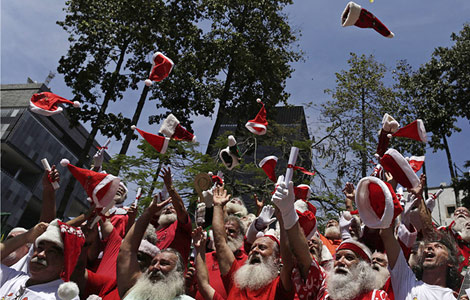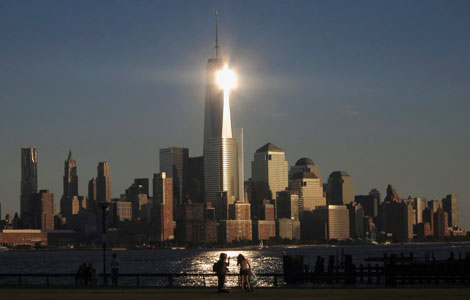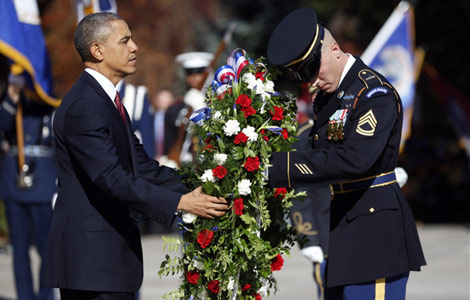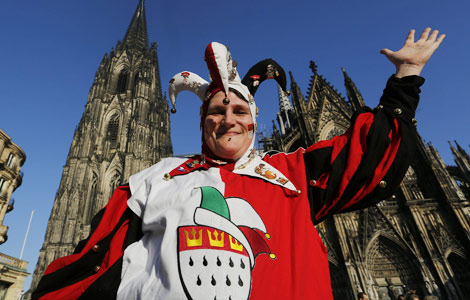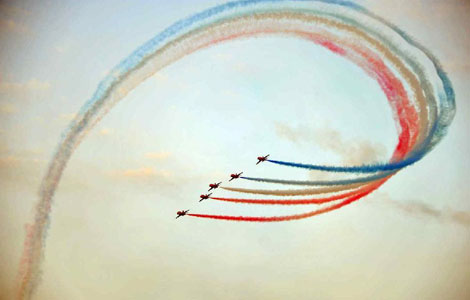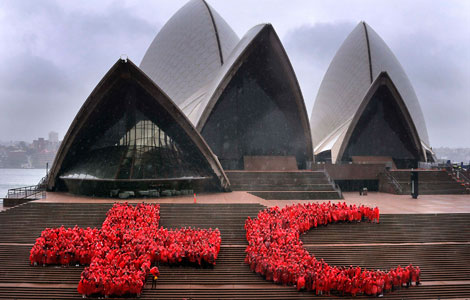

This is the first Shangri-La in Europe, a magnificent melding of two great cultures in one palatial mansion.
It used to be the palace of Prince Roland Bonaparte, Napoleon's grandnephew. This is a royal mansion in the 16th arrondissement of Paris nestled by the banks of the River Seine, within hailing distance of the Eiffel Tower. It is now the new landmark of style and luxury in the fashion capital, a place where chinoiserie influences make an eager come back.
The 117-year-old mansion has seen countless changes of ownership, and it has finally found a place as an icon where Chinese hospitality, art and culture meet and merge with the gracious art of living, the French way.
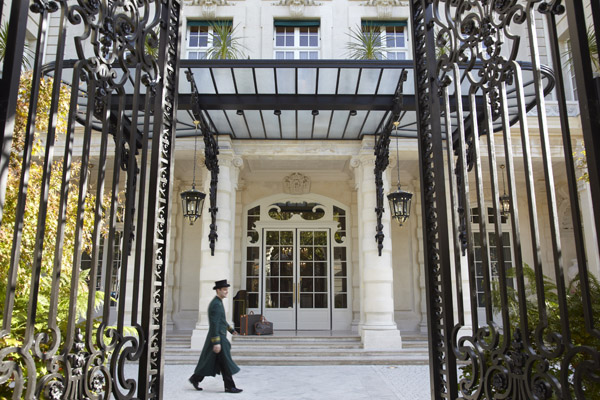 |
|
The entrance of Shangri-La Hotel Paris welcomes guests with Rococo-style ambience. |
The marriage occurred in 2010, when the Shangri-La Hotels and Resorts Group opened its first luxury hotel in Europe here, in a chic Parisian enclave of antiquity and art, where museums like Guimet Museum, Palais Galliera, Marmottan Monet Museum among others are all within walking distance.
"This part of town is the center of the world," says Alain Borgers, general manager since renovations started five years ago. He was a part of the pre-opening pioneer team and will hand over duties to a new general manager soon.
"We kept making new discoveries while renovating this princely estate. For instance, we uncovered an inner courtyard beneath where the Murano glass chandelier hangs from the ceiling in the La Bauhinia restaurant," he says, adding that the Shangri-La team had to invest time, patience and a lot of respect for the property's history during the face lift.
It's hard to imagine what this princely estate looked like before, battered as it was by time and men. But the Shangri-La team was determined to help it regain its former glory, and each and every member of the hotel's 300-member staff can tell its story.
Since the Shangri-La Paris opened, both locals and visitors have savored the brand's legendary "made-in-Asia" style of hospitality. Luxury travelers from Asia are eager to experience a stay in an aristocratic piece of French history.
Currently, the United States accounts for about 22 percent of the hotel's guests, followed by Asian travelers, mostly from Hong Kong, with guests from Europe making up the rest.
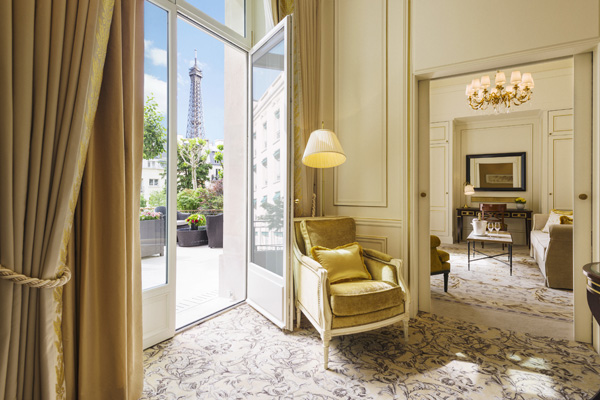 |
|
The 101-room hotel is one of the best vantage points to view the Eiffel Tower.Photos provided to China Daily |
Part of the charm is the décor and architecture, but it is more the unique blend of stylish details.
First, there is the grand entrance, through massive wrought-iron gates that open into a green forecourt embellished with lions on the coat-of-arms and Rococo-style balconies straight out of the Louis XV era.
Two large Ming Dynasty-style vases, with colorful peonies in full blossom, guard the entrance on both sides and welcome visitors with a floral flourish. It is very Parisian, and very Chinese.
The concierge desk, just opposite the reception, is another décor highlight with a sandalwood cabinet lined with fine Chinese porcelain plates.
Even the elevator ride is like a brief trip to fairyland, with the sides of the cabin papered with Tiffany-blue wallpaper with birds and flowers.
Chinese ink abstract landscapes and European-style sculptures set the tone in the public areas, and it seems every corner is a scene of beauty.
The 101-room hotel, with 36 suites, is also one of the best vantage points to view the Eiffel Tower.
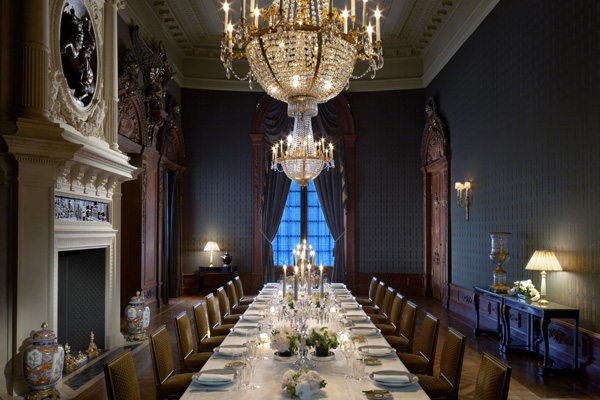 |
|
Ideal for hosting prestigious weddings and banquets, Salle a Manger, a function room, is decorated in Louis XV style. |
L'Abeille, the hotel's two-star rated Michelin restaurant serving fine French cuisine, is next to an oasis of a garden clearly seen through ground-to-ceiling picture windows.
Another gastronomic gem is Shang Palace, the only Chinese restaurant in Paris awarded one star by the 2013 Michelin Guide, where the kitchen is helmed by Frank Xu and his team of four Hong Kong chefs.
To better cater for guests eager to explore the neighborhood and discover the real Paris, Shangri-La Paris offers various tour options.
You can also get them to organize tours to the Rochas workshop, a time-honored fashion icon and perfume maker, and discover the whole process of perfume making, an art, and a science. Guests from Asia are told that certain ingredients such as Sichuan pepper and Chinese parsley are beginning to influence a new generation of scents.

